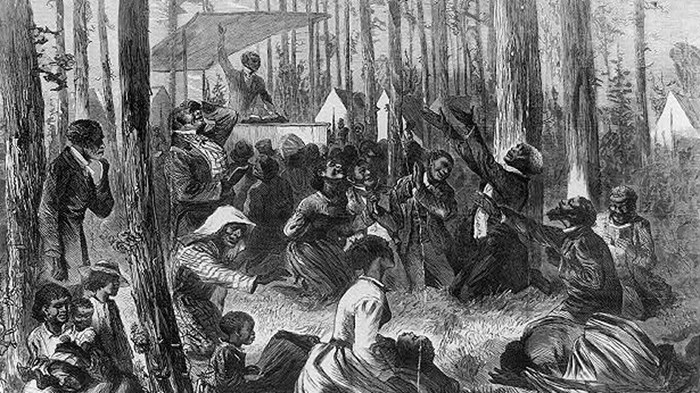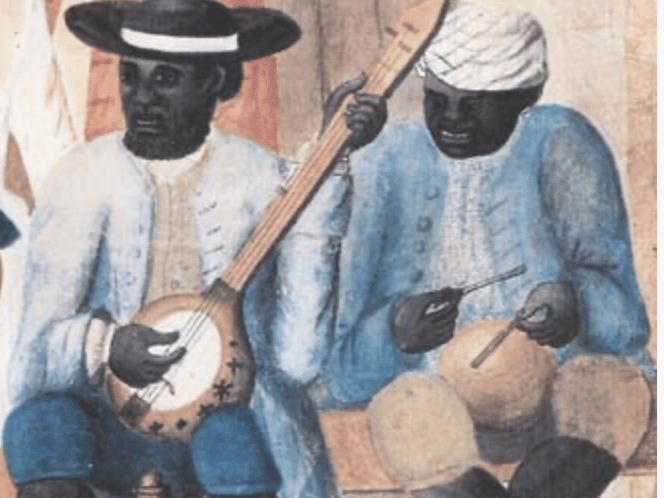April 26, 2021 | By: Alexis Bratton
The preservation of Black lives and their untold stories, is due to Folk music’s impact on American society. Folk genre has been able to surpass limitations of both time and oppression; the umbrella term continues to be an important contribution to knowledge and art. From one African-American generation to another, storytellers were able to construct a lingua franca. That would not only birth other forms of genres and techniques. But invoke change in all aspects of African-American history, from civil rights, religion, social expression and community establishment.

Folk Music is a byproduct of the Transatlantic Slave Trade similar to negro spirituals in the early 1600’s. This genre is a blend of various tribes and different cultures; whom shared a common condition of forced migration to North America. Traditional folk music occurred simultaneously with negro spirituals, however folk genre is distinguished by its worldly content. Lyrics of the oppressed began to emphasize the atmosphere of early slavery in the U.S. In comparison to spirituals, songs shifted from religious references. Nevertheless, the compelling rhythms and melodies served as a shared voice for all persons in African-American history. The transition of perspective’s from sacred to secular marked a new social expression for creative resilience established by enslaved people.

Traditional folk used metaphors to personify harsh labor and racial inequality apparent in “work songs” performed on plantations and prisons. Folk music has a recognizable rhythmic pattern and easy to follow tempo; call and response. Which made songs easier to verbally communicate messages in a time where slaves were forbidden to read or write. Just one of the many strict laws that limited black autonomy, folk is pure resilience. Instrumentation in traditional folk music varies by region but adds another level of beauty to this genre’s African roots (instruments includes: the banjo, djembe drama, fiddle and patting juba). Black people always find a way to make something out of nothing. Patting juba or commonly known as ham-boning is a testament to this proverb. It is a combination of hand-clapping, foot-stomping, and striking different parts of the body to substitute drums.
Folk music established black communities; it was a way of musically passing down heritage from one generation to another. It is not a secret that black stories get misinformed and purposefully erased from American history. With that being said without musical folklore a significant amount of African-American history would be lost in context of this time period. Folk music represented black liberation and helped start black culture back then and now. Eventually Folk music became a mix between oral tradition and modernly recorded art. songs are often symbolic representing unity, and hidden messages for resistance. Black bodies once reduced to labor exploitation were able to pioneer a lineage of knowledge and tangible art in a time that predates recordings. And then inspiring a movement of musical protest, that intersects the political agenda of human rights and art. Encouraging artists like Odetta Holmes, Nina Simone, Tracey Chapman, Lauryn Hill, Elizabeth Cotten.
Folk music’s contributions on American society are endless, far too long misleading sources speculated that this genre had no origin. The truth is evident in African-American history it is the enslaved who pioneered this genre that interconnects music and politics. It is the resilience of one African-American generation to another, that saved black culture from being erased. It is the descendants who made the choice to pass on the torch to their children. It is our job to join in fellowship once again as a nation to acknowledge the lessons that this miraculous genre has taught us.

